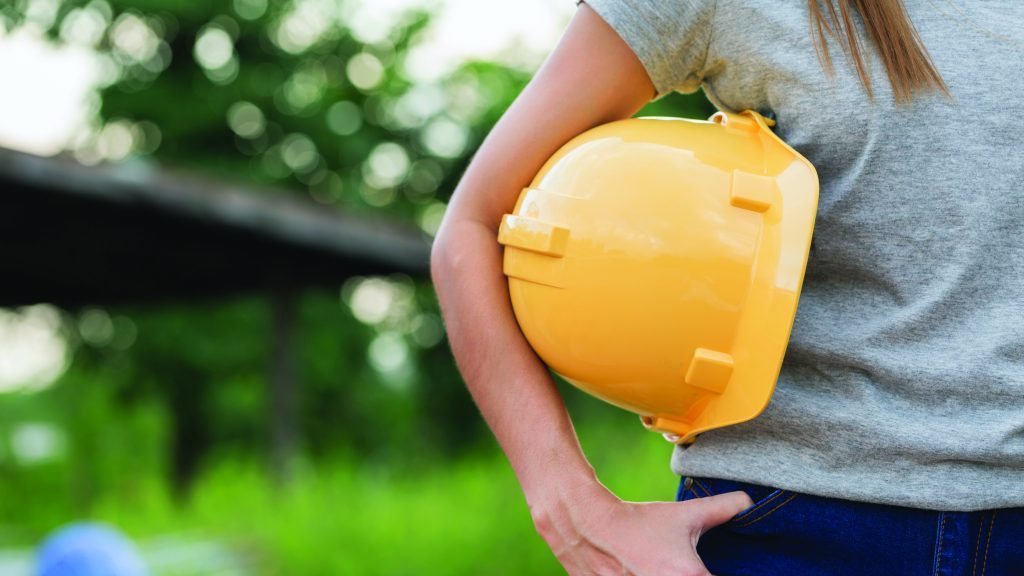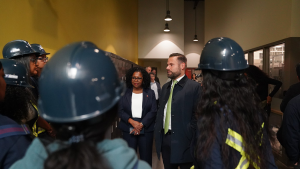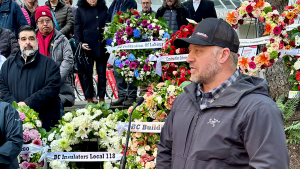Theresa King, the first female president of the Florida Building Trades, recently shared her experience working in the field with tradeswomen in B.C.
The event was organized by build TogetHER, the women’s committee of the BC Building Trades, to provide a dialogue about the barriers tradeswomen can face and how to overcome them.
One of the major issues women face in the trades is isolation simply by there being so few of them. In an interview with the Journal of Commerce, King explained she believes there are so few women in trades because they are never introduced to the industry.
“If someone took the initiative to introduce our programs to women, teens and even young girls, about what we do and had the enthusiasm in our voices when we speak about our trades, we could create an opening for their response,” said King. “Then they feel part of the conversation instead of just being talked at.”
In Canada, women account for roughly four per cent of skilled trades workers.
In the U.S., King started her career as an electrician apprentice and explained that, at the time, many men did not believe women were strong enough, good enough or tough enough to handle a construction site.
“The women we did have sometimes were given the jobs with lesser intellectual skill, including myself,” said King. “But I stood up for myself and demanded they properly train me to be a skilled craftsman or lay me off.”
King said it was a successful strategy that taught employers that skilled women workers knew they were valuable and were willing to take their skills elsewhere if needed.
When first starting out, passion is key, advised King. One also needs to take gender out of the equation.
“There will be other battles to deal with because of our gender but our work should never be one of them,” she said.
She added there isn’t a single job a woman can’t do, but everyone has limitations and adjustments must be made.
“Those adjustments never mean we cannot do our job in a skilled and professional manner while focusing on quality and safety,” said King. “We are strong enough, dedicated enough and skilled enough, just as our programs train us to be.”
King also praised Build TogetHER and hoped to do something similar in Florida.
“This program is being ran by union tradeswomen that know what it is like in the field,” said King. “They have walked the walk and seen the daily struggles in being a woman on the job. Construction is a physically demanding job. Women also carry on the site the struggles of balancing a home life with the demands of the construction life. But we are resilient. This program brings different trades together and has the women in its leadership that know exactly the struggles of a construction life.”
Build TogetHER co-chair, refrigeration mechanic Julia Ballantyne said she found hearing from King and learning about her career inspiring. She got into the trades after becoming disillusioned with college and trying her hand at taking some trades courses.
“I just chose to go for it,” she said. “You earn while you learn, and I figured if I didn’t enjoy it, it wouldn’t really end up costing me anything. Now I have a career.”
Ballantyne said the industry in Canada needs women like King in more leadership roles as it can help address problems from the top down.
“In 2018 there shouldn’t still be so many ‘firsts’,” said Ballantyne.











So true that women are not in the trades because they have not been made aware of the opportunity. In Massachusetts, our Build A Life That Works does Tradeswomen Tuesday info sessions across the state. Hundreds of women have attended to find out how to enter union apprenticeship in construction. Good work, sisters. Let’s spread the word.